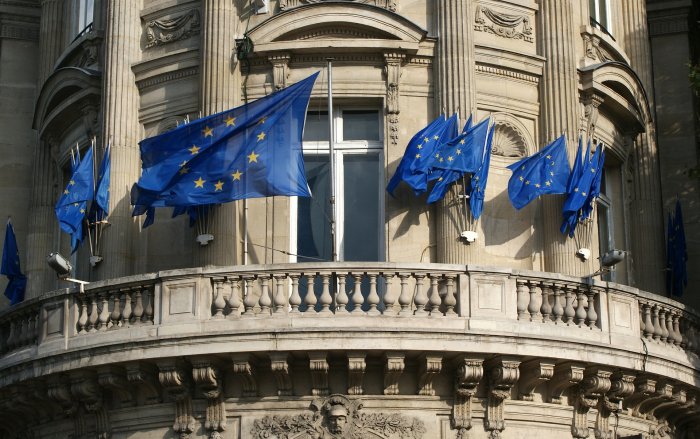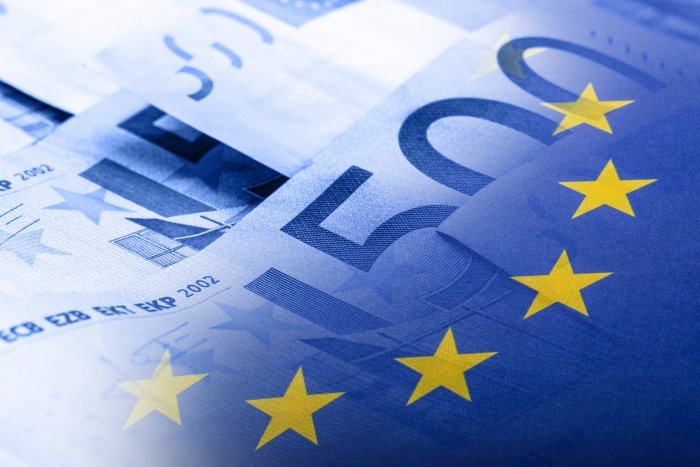EC ‘sets record straight’ on ‘Stop Brussels’ consultation

pixabay
In a press release dated today on the European Commission website, the EC announced it would publish today its response to what it describes as “false claims” in the Hungarian governmentʼs “Stop Brussels” national consultation launched in April 2017.
“The Commission considers that the consultation is based on several factually incorrect or highly misleading claims and allegations and will therefore set the record straight in its response – based on hard facts – that has been made public at the start of First Vice-President [Frans] Timmermansʼ intervention at the European Parliament Plenary debate today,” said the EC press release available on its Press Release Database, noting that the full text of the latter has been made available in English and Hungarian.
The press release continued that it was “decided on 12 April to continue to use all available means under the Treaties to uphold the EUʼs shared values and to engage in a broad political dialogue with the Hungarian authorities, the other Member States and the European Parliament.”
The press release added that the first opportunity for a public dialogue would be at this afternoonʼs Plenary debate of the European Parliament, with the participation of Timmermans and Hungaryʼs Prime Minister Viktor Orbán.
Pulling no punches
Under the heading “Facts Matter: European Commission responds to Hungarian National Consultation,” the EC outlines point by point its objections to claims in the Hungarian governmentʼs communication in its latest “national consultation.”
It begins by noting:
“The European Union is not and has never been about ‘Brussels,’ but a project driven and designed by its Member States, each of which has decided unilaterally and democratically that this is the path they wish to adopt, including Hungary. Each and every one of those Member States, including Hungary, takes both the responsibility and the credit for the decisions taken collectively.”
The document then addresses each of six Hungarian government claims in turn. The main points are addressed as follows, responding in each case to what is described as a “false claim” with a corresponding “truth.”
1. FALSE CLAIM: “Brussels wants to force us to abolish the reduction in public utility charges”
TRUTH: The Commission shares the Hungarian government’s objective to have affordable energy for households. The best way to achieve this is to establish competitive energy markets and promote energy efficiency and innovation and to work together at European level to ensure security of supply.
The document adds: “Functioning markets offer people the choice between suppliers competing for lower prices and better service. Hungarian businesses buying and selling their energy on competitive markets are able to enjoy and offer decreasing electricity prices. In other EU countries where power prices are not regulated, household customers have seen their electricity prices decrease. Besides, Member States can use other means to reduce public utility charges than regulated prices.”
2. FALSE CLAIM: “Brussels wants to force Hungary to let in illegal immigrants”
TRUTH: The European Union is fighting irregular migration and is helping Member States to manage their external borders.
The document adds: “Europe’s new Border and Coast Guard will strengthen the collective European efforts to manage borders more effectively. The EU is also working with countries where migrants come from or pass through to tackle the source of the problem.”
“Irregular migration needs to be distinguished from seeking asylum. For genuine asylum seekers, the European Union lives up to the international obligations of all democracies to protect people – men, women and children – who have to leave their homes because of war.”
“Hungary is [...] asked to accept a very limited number of asylum seekers (1,294) – not ‘illegal immigrants’ – from the two most overburdened Member States, Greece and Italy. These people are carefully identified and include only those with a high chance of being genuinely eligible for refugee status.”
3. FALSE CLAIM: “Illegal immigrants heading to Hungary are encouraged to illegal acts by not just the human traffickers but also by some international organizations”
TRUTH: The European Union has zero tolerance for human trafficking and has taken action for many years to combat this exploitative crime.
The document adds: “Saving lives at sea and looking after vulnerable people who have fled bloodshed and war and are in need of international protection is not the same thing as promoting irregular migration. There is no evidence of NGOs working with criminal smuggling networks to help migrants enter the EU.”
“Non-Governmental Organizations (NGOs) and other international organizations are, on the contrary, among the most reliable and valuable partners in dealing with the refugee crisis. They offer asylum seekers information and legal advice and also provide reception and care facilities, helping to ease the burden of Member States.”
4. FALSE CLAIM: “More and more organizations supported from abroad operate in Hungary with the aim to interfere in Hungarian internal affairs in a non-transparent manner”
TRUTH: The conditions under which Non-Governmental Organizations (NGOs) carry out their activities are in principle a matter of national law. The European Union, for its part, has strict rules on transparency and lobbying of the European institutions.
The document adds: “Anyone seeking to influence EU policies by meeting the institutions is required to disclose their budget for the most recent financial year, including the amount of funding they receive from the EU. EU rules on transparency apply to all interest groups and all are treated alike. This transparency allows the public – in Hungary and across the EU – to be the judge of our work, and this public debate helps build a stronger democracy.”
5. FALSE CLAIM: “Brussels is attacking our job-creating measures”
TRUTH: Neither the Commission, nor the European Union, is attacking Hungarian job-creating policies.
The document adds: “On the contrary, the EU is massively supporting job creation in Hungary, having provided for example more than €21 billion to Hungary to support growth and jobs through regional policy funding alone in the period 2007-13. The Hungarian authorities have reported that this contributed to creating more than 150,000 jobs.”
“For 2007-2013 the EU financed 57% of all government capital investment in Hungary (the highest rate in the EU). Hungary is due to receive over €25 billion in EU investment during the period 2014-2020.”
6. FALSE CLAIM: “Brussels is attacking our country because of tax cuts”
TRUTH: The European Commission does not interfere in national taxation policies, nor does it propose to do so. EU taxation rules must be agreed by all Member States unanimously, which means all current rules were approved by the Hungarian government.
The document adds: “The setting of corporate tax rates and income tax rates is a sovereign right of every Member State and the EU has no intention to meddle in that. All issues related to tax can only be agreed by the EU if all Member States – including Hungary – agree.”
SUPPORT THE BUDAPEST BUSINESS JOURNAL
Producing journalism that is worthy of the name is a costly business. For 27 years, the publishers, editors and reporters of the Budapest Business Journal have striven to bring you business news that works, information that you can trust, that is factual, accurate and presented without fear or favor.
Newspaper organizations across the globe have struggled to find a business model that allows them to continue to excel, without compromising their ability to perform. Most recently, some have experimented with the idea of involving their most important stakeholders, their readers.
We would like to offer that same opportunity to our readers. We would like to invite you to help us deliver the quality business journalism you require. Hit our Support the BBJ button and you can choose the how much and how often you send us your contributions.










